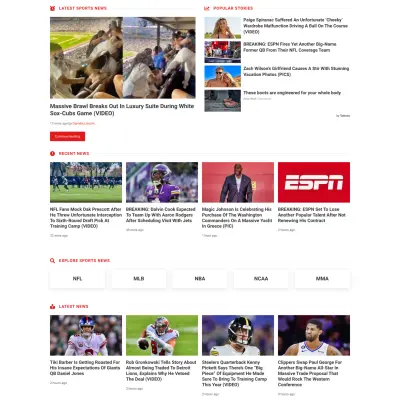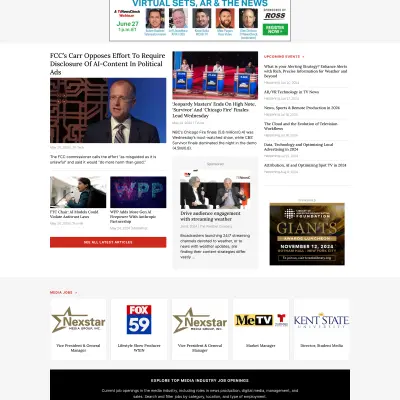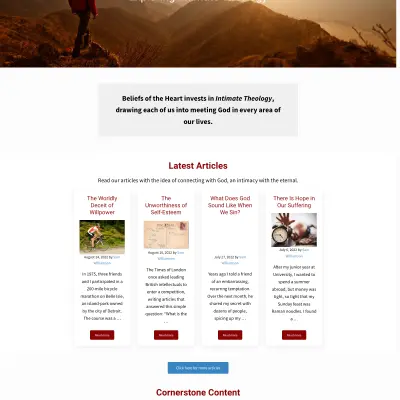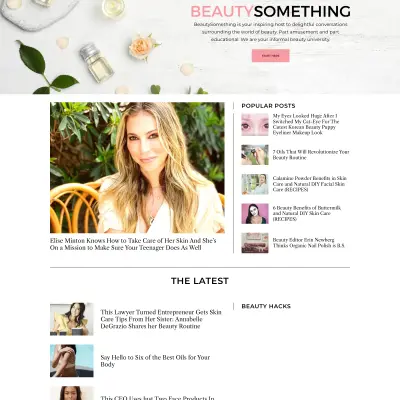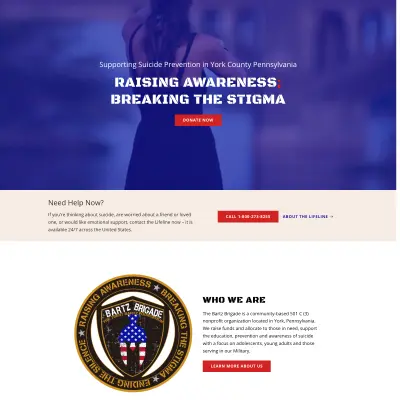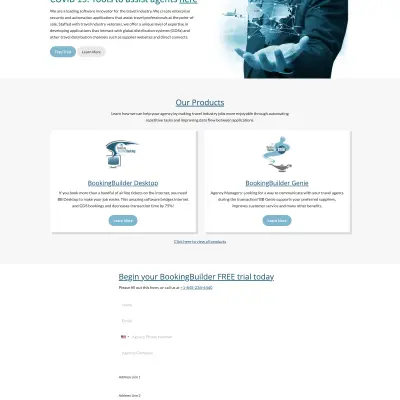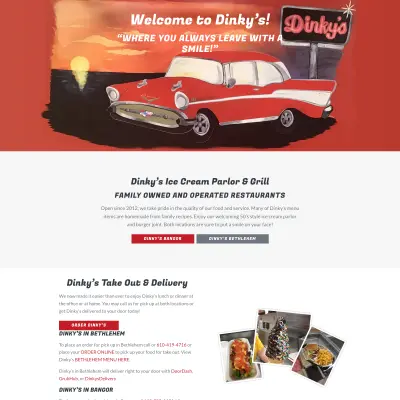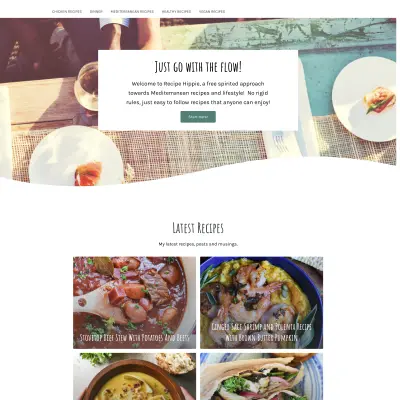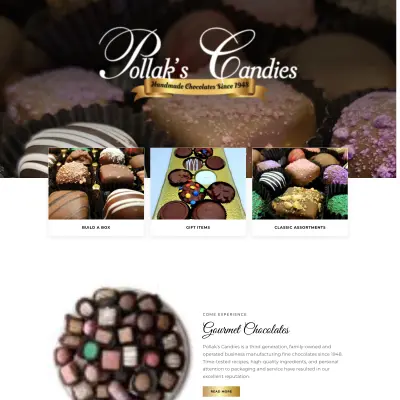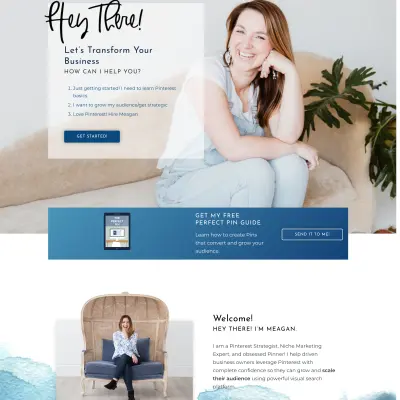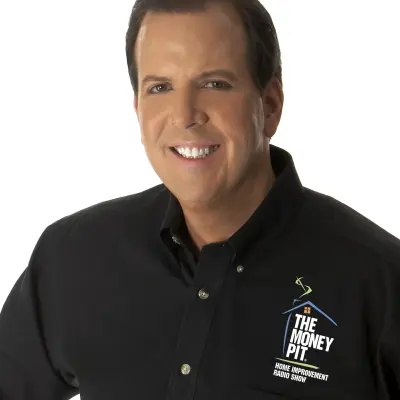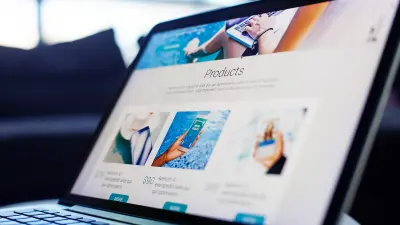
Get personalized content recommendations and answers drawn from our website. Simply type your question or topic of interest, and our AI assistant will help you find relevant articles, tips, and insights. You can also have a natural conversation to explore topics in more depth.
What a Blog Was 20 Years Ago…
I am going to start with a little perspective, because to understand how cool blogs are nowadays, you need to have experienced the early days. If you don’t care about my story, no problem. Skip down to the “What is a Blog” heading for the the more factual explanation.
Blogging has changed so much in my lifetime. My first introduction to blogging was Xanga. Then Myspace came along. Myspace was more of a blog-social media hybrid. Both were the same in that they gave you an outlet to write journal-style entries about what was going on in your life though. You friends read them and commented, and assuming you were a good friend, you did the same for them. There was also a “profile” aspect to them. Basically you sum up who you are, your interests, and so on. Current blogs are still a lot like this (most have an “About” page).
If you have no idea what these platforms are, you really did miss out. They were a big deal at the time and helped pave the way for today’s blogs which range from hobby blogs—harkening back to the Xanga/Myspace days, these focus on whatever you want and are into at the moment and are really just for you—to blogs about vegan cooking, raising chickens, and life on the road in an RV. (If you are into these topics too, please leave a comment and let me know because I think we’d be best friends ?.)
You don’t need to be a business to start a blog, but you CAN turn your blog into a business.
Yes, this is real, and people do it all the time, more and more every day, and they make enough to sustain themselves off of it. We live in an amazing time, and it gives me valuable perspective to have been witness to this evolution of blogging—especially considering I now write for one. As the blogosphere has shifted and evolved, it has affected web development, social media, business, entrepreneurship, remote work, and much more.
If you started as a business selling products or services, that doesn’t mean you cannot leverage a blog.
Quite the opposite. You can and really should. A blog can help you grow your following, serve your customers, build brand loyalty, and increase sales. We’ll get into that more in a bit.
In this blog post I cover what a blog actually is, blog examples, the difference between a blog and a business website, why your small business should seriously consider blogging, and how to start.
What is a Blog?
Okay, so here’s the real definition in case you skipped my trip down memory lane. Blogging has been around since the ’90s. The word “blog” is short for “weblog” which was coined by Jorn Barger in 1997. The original term actually had nothing to do with blogging and was just Barger’s way to describe his process for “logging the web” as he explored the internet.
The word “weblog” was shortened to “blog” in 1999 by Peter Merholz.
As mentioned, the first blogs were online journals where people just posted about their personal lives (these early blogs were basically like long Facebook updates). Then, topic blogs where people posted recipes or travel tips started to become popular.
The first blogging platform was created in 1998. This site was called Open Diary, and it allowed users to post their thoughts and ideas and other users could use the comment section to interact with the poster. This paved the way for more popular platforms for personal blogs such as LiveJournal, Blogger, Xanga, and Tumblr. (I just remembered I had a Blogger too! Wow, there were so many options, and there still are.)
In 2003, people were able to turn blogs into full websites when WordPress was created (spoiler – you should use WP). WordPress is the most popular content management system (CMS) for bloggers, and it powers over two-thirds of the internet.
Nowadays, a blog is used for both personal and business purposes. If you build a successful blog, you can even turn that into a business and make money blogging. Blogging has definitely come a long way in 20 years.
What Else is a Blog?
So, a blog may be the way you classify your entire website. This is usually done when there is a content-heavy focus. The products are almost secondary or are built around the content.
A blog section may be part of a website, the way a fashion blog is part of a clothing brand’s website. The blog supports the products—how to wear them, how to use them, how to care for them, etc.
A blog may also refer to a blog post. Like this thing you are reading now. Posts make up your blog and each typically focuses on a specific topic. Pages are for more general info and typically occupy a large portion of real estate on your main menu (e.g. Start Here, About Us, Services, Work with Me, Contact, etc.).
What Are Some Types of Blogs?
You can blog about anything under the sun, though you may want to hone your focus if your goal is to monetize your blog at some point in the future. If your blog is more of an online diary just for you, then this is not so much of a concern. Here are a few popular blog examples and the type of content you might share:
Travel blog
Travel itineraries, focus on a region, state, country, or global, videos, food, culture, lifestyle (backpacking, solo traveling, etc.)
Fashion blog
Trends, outfit ideas/inspiration, closet essentials, find your style, could be niche/industry-specific (scrubs, skiing clothes/gear, etc)
Food blog
Recipes, meal plans/menus, focus on a type of food/diet or even on one type of meal or food item
Home lifestyle blog
DIY home improvement and projects, step by step guides, product reviews, decor inspiration, crafts, organization ideas
Health blog
Articles, at-home remedies, DIY(make you own health/beauty products), science-based
News blog
General news sites that incorporate lots of topics or industry/interest-based
Tech blog
Could be news-based and/or focus on the newest/best tech with reviews and recommendations
Fitness blog
Fitness routines, exercise videos, weight loss plans, reviews of gear/tech/equipment
The possibilities are literally endless so focus on what you love, what you are passionate about, and where you can provide real, unique value. If you see a gap in the market, this is the perfect opportunity for you fill it with your brand.
Do any of these sound like you?
View our website templates to see what’s possible. Get ideas from what others have done and get started building your next passion project, side hustle, or full-time business venture.
What is a Business Website?
(And How Is It Different from a Blog?)
A lot of people ask us, should business have a website or should they blog?
You should most definitely have a website if you are a business.
This doesn’t need much explanation. You see the trends…online shopping, subscription services, e-learning…hell I don’t even leave my house to get groceries most of the time anymore.
People want to get what they need from the comfort of their homes. COVID has only re-enforced that. If you do have a brick and mortar location, a website helps more people find you that otherwise might not, so it’s still really important.
We also think businesses should blog—that is, create stories/posts/ongoing content for their audience—because it’s a great way to create relationships with people.
Business Websites vs. Blogs
Let’s get to the basics…what is a business website? What is the difference between that and a “blog.”
- When you refer to a website as a blog, you likely do so because the content is the main point of attraction. The content teaches, entertains, guides, or informs on a topic.
- Blogs tend to be focused on a person or people. Business websites tend to be focused on products or a brand.
- Blogs can sell products, but they are not the focal point. Think of it more as a “soft sell” experience where your trust and loyalty are gradually gained through exposure to the blog content.
- On a business website, the product is the focal point. It’s more of a “hard sell.” This isn’t a bad thing, though it can make it harder or take longer for businesses to build trust and loyalty. That’s why having a blog on your business website is so important. It helps you establish that deeper connection with your audience.
- Blogs produce new content on a regular basis, while a website stays mainly static with some minor updates here or there to keep information current.
- A website is made up of webpages. Business sites typically have a homepage, shop or products page, product detail pages, a contact page, and sometimes an about page. However, you can, and should, have a blog page on your business website.
Business Blog Examples
Whether you are a consultant, agency, photographer, online shop, brick and mortar business, or anything in between, you can build a successful business by supporting your website with great blog content. See what others have done and get inspired.
Tips for New Business Bloggers
Business websites never used to incorporate a blog (many still don’t), but there are plenty of benefits to having one. This may seem overwhelming at first, but anyone can blog as long as they have a target audience and a level of expertise on a subject.
Some basic tips for new bloggers:
- Choose specific topics based on your area of expertise. Make these blog topics as niche as possible so that there’s less competition in search engine ranking and your content will appear first, giving you authority.
- Do some keyword research on what questions your target audience may have. You can also reference support questions or FAQs for more ideas. This IMO is some of the best kind of content you can create because it serves as an answer to those questions and takes support load off of you. As a business owner that frees up that time, energy, and cost for other things. It can even help you make more sales.
- The easiest kinds of ideas for new blog posts are step-by-step guides and lists (top 10 or other). These are generally evergreen or cornerstone topics that will have longevity and bring in consistent search traffic.
The types of blogs that are able to make that transition are ones that focus on regularly producing great content that interests their audience, then building products and services around their knowledge base after they have established their expertise, authority, and trust. This is also known as EAT, a search quality evaluator created by Google.
Why Your Business Should Have a Blog
Even if the main purpose of your website is to sell things or provide client services, having a blog and producing high-quality content is a great way to drive traffic. This traffic will, naturally, lead to customers and sales. Here are some stats that illustrate the benefits of business blogging.
- 80% of internet users interact with both social media sites and blogs. (DemandMetric)
- Companies with blogs produce an average of 67% more leads monthly than companies that don’t blog. (DemandMetric)
- Blogging is the third most common content marketing strategy, after video and eBooks. (HubSpot)
- 70% of people would rather learn about a company through articles rather than advertisements. (DemandMetric)
More Search Engine Traffic
According to Hubspot, “B2B marketers who use blogs receive 67% more leads than those who do not, and blogs have been rated the 5th most trusted source for accurate online information.”
This is because blogs are great for search engine optimization (SEO). If your business has a blog, you can get your site to the front page of Google or other search engines with optimized blog posts. Websites are found in search engine results through keyword searches, and blog content is a great resource for getting in plenty of keywords that are relevant to your business.
Your keyword research should be based on predicted user intent. For example, this post should come up in a Google search for “what is a blog” or “should my business have a blog.” User intent means that the posts you write are supposed to answer a question or solve a problem that the user has. We did our keyword research to write up an answer to the two questions mentioned above and you found us, so it worked!
Connect with Your Audience
A blog is a tool that helps you interact with your audience. This can be done by looking at how many readers share your blog posts on social media, or by allowing people to comment on your posts.
Having a blog is also great for connecting with your audience through email marketing. It’s easier to build your email list when you can provide a steady output of new, useful information through promoting blog content in your emails.
Build Authority
A blog is a great way to build authority and brand exposure. Support your audience by answering their questions and pointing them to relevant content. As you begin to sell things, testimonials, social proof, and case studies become key components in building trust and credibility. Don’t just talk about your product’s specs. Focus on the transformation that people can experience. Telling your own story can be really powerful here. This shows that you have a personal investment in the cause/mission, and that you are not simply in it to make money.
The Mai Testimonials plugin is part of Mai Theme Pro Bundle. Mai Theme Pro Bundle includes all everything from Mai Theme Essentials, plus 12+ pro plugins, 42+ prebuilt block patterns, and more!
Drive Conversions and Sales
The traffic, connection, and authority you will gain by producing remarkable content on your blog will convert to regular readers/customers and sales.
You could even make money with the blog as you sell products and services. There are multiple ways you can monetize your blog. Some of the most common and successful ways are:
- Advertisements
- Sponsorships
- Affiliate Marketing: Add links in your blog posts referencing a product, and when people purchase through your link you earn a commission. Amazon has a very popular affiliate program. You can even create a Recommend page on your website to highlight all of your favorite things.
- Digital Products (ebooks, courses, webinars)
Learn More About Website Monetization
Consider Podcasting Too
Podcasts can easily go hand-in-hand with blogging when it comes to marketing your business. They’re a great way to reach your audience anywhere, at any time.
Podcasts are more accessible than blog posts because they can be taken in on the go, or while multitasking. You can’t read a blog post while driving, exercising, or working, but you can listen to a podcast.
Audiences also connect with podcasts more than blog posts because it sounds as if the host and guest (or guests) are speaking directly to them. It sounds like listening to a friend and having constant company on a long drive or while doing a tedious chore around the house.
They’re also starting to edge out blogs in terms of SEO. Audio has been catching up with blog posts in an internet search because of something called show notes. These show notes make each podcast look as if it comes with its own blog post as it details sections of podcast episodes like a transcript. Show notes can range from simple bullet points, to full paragraph summaries.
One isn’t really any better than the other, it’s just a matter of preference and giving your audience more options.
We record and release our podcast and add a related blog post with show notes, resources, and quick wins. Check out some examples and learn more about podcasting by listening to these podcasts.
Where to Blog (WordPress.org)
By this point, I hope you are seeing the value in creating a blog. The next logical question is, where should you host your blog.
Where you blog is important and can make or break your success. WordPress is the most popular blogging platform because it’s so versatile and easy to use. We wholeheartedly recommend WordPress.org (this distinction is important) for these reasons. WordPress has a strong market share and continues to grow, so there’s stability there.
You can also add as many blogging tools or plugins as you need to your blog when you use WordPress.org—though you should only add ones that are necessary and that you trust. You can even customize how your WordPress site looks with themes to suit your business and content.
WordPress.com vs WordPress.org
It’s important to know the difference between these websites when planning out your new WordPress blog. Even though they have similar domain names, they are very different in what they offer.
The main difference is that WordPress.com is free to use, but has limited features, while WordPress.org is a paid service (prices vary based on how advanced you want your site). The .org site has unlimited customization options for themes, full support, and you can have as many plugins as you like.
WordPress.com has free web hosting, but zero customization options and very limited storage so your site would look very basic, and it wouldn’t gain a lot of attention. You can’t even have a custom domain. Furthermore, WordPress will run all sorts of ads on your page, but you’re not allowed to monetize your blog with your own ads. If you have WordPress.org you can choose the ads you want to run, and you get to keep 100% of the revenue.
WordPress.org generally runs from $46 to $100 per year, but it’s a worthwhile investment in running your own online business. WordPress is the best blog site because you get your money’s worth from all of the useful features.
We understand that learning a new platform can be intimidating. That’s why we provide free WordPress tutorial videos for all of our customers.
Why You Should Not Use a Website Builder
Website builders like Wix might seem like the perfect solution if you are not technically inclined, but many people find out after time they are not getting the SEO they want or the ability to add content or products or sell courses.
We’ve built Mai Theme so people could get started quickly and easily without those constraints. It also integrates with WooCommerce and LearnDash (e-learning/course builder plugin). Create memberships, subscriptions, and products with ease on Mai Theme. You’ll never be held back from growing your business.
How Do I Get Started Blogging?
One of the most daunting things about starting a blog is making sure all the pieces are put together right. There is so much information out there and so many tools to choose from. It can be very overwhelming. Because we’ve built hundreds of custom sites for well-known bloggers focused on the pillars of great website design and performance, we know a thing or two about how to strike that balance. We took that experience and the feedback of our clients and created Mai Theme.
Mai Theme is a block-based WordPress theme geared for people who want to start a blog but don’t want to have to worry about all the technical aspects, how to configure it, and how to set it up.
Your site will come pre-configured for you, pre-loaded with the best WordPress theme, and set up with all of our website templates and starter websites that you can load.
What else is cool about Mai Theme? You can build it and see what it looks like before you even make it public to anybody. Plus, the block editor and our custom blocks make it easier than ever to add content and your own design to your pages and posts.
Choose Your Mai Theme Bundle
Mai Theme comes with all of our website templates, so whatever your industry or niche, there’s something for you. Learn more about getting started now.
Mai Theme Essentials
$99
Auto-renews yearly
Mai Theme Pro Bundle
$198
$148
Auto-renews yearly
Save $50 when you buy Mai Theme Essentials and the Mai Pro Pack together.
Mai Theme Lifetime Bundle
$699
One-time fee


